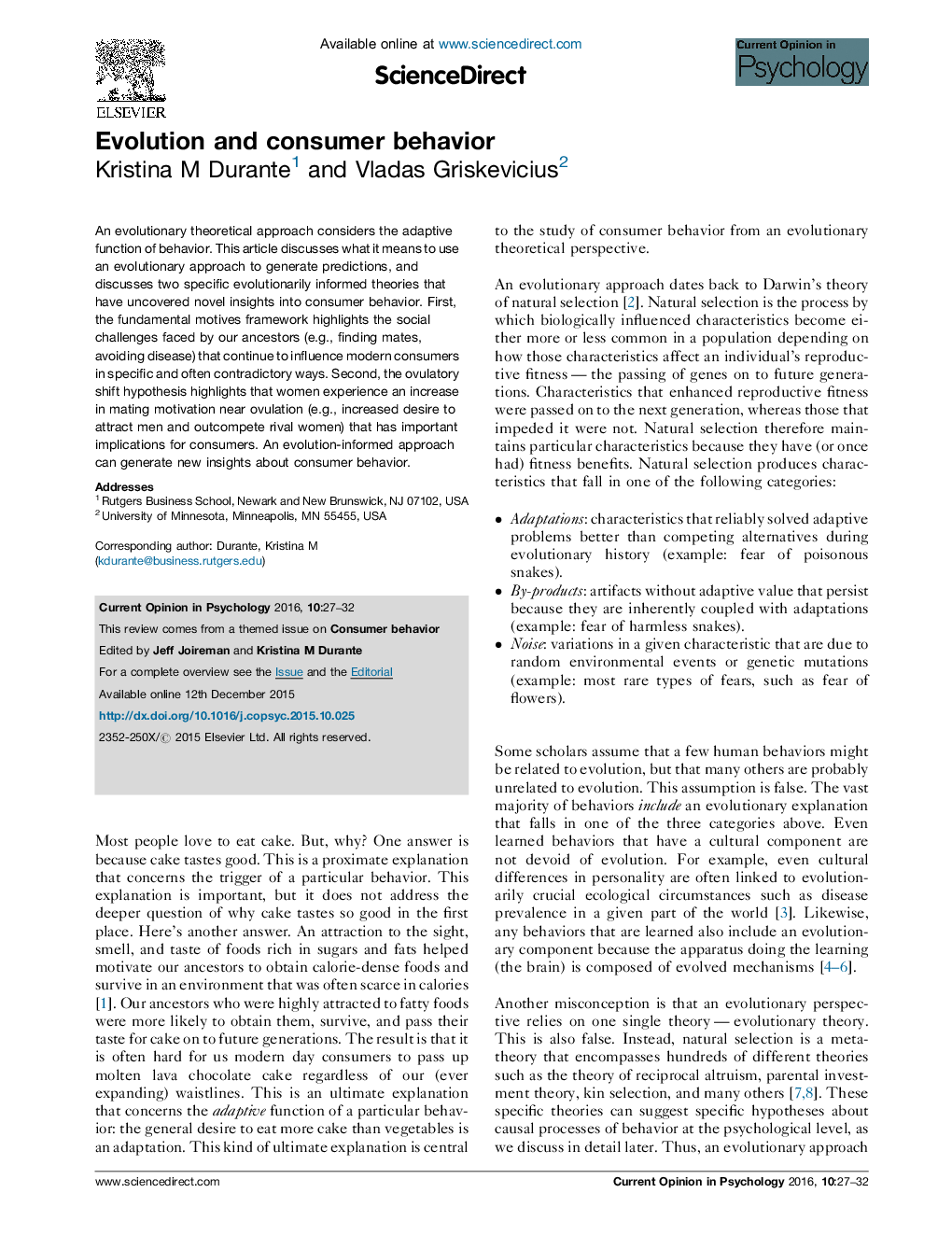| Article ID | Journal | Published Year | Pages | File Type |
|---|---|---|---|---|
| 879267 | Current Opinion in Psychology | 2016 | 6 Pages |
•An evolutionary approach to consumer research can generate novel predictions.•This approach considers the adaptive function of behavior.•Specific challenges faced by our ancestors influence modern consumer behavior.•Women's consumer behavior shifts at ovulation, when mating goals are most salient.
An evolutionary theoretical approach considers the adaptive function of behavior. This article discusses what it means to use an evolutionary approach to generate predictions, and discusses two specific evolutionarily informed theories that have uncovered novel insights into consumer behavior. First, the fundamental motives framework highlights the social challenges faced by our ancestors (e.g., finding mates, avoiding disease) that continue to influence modern consumers in specific and often contradictory ways. Second, the ovulatory shift hypothesis highlights that women experience an increase in mating motivation near ovulation (e.g., increased desire to attract men and outcompete rival women) that has important implications for consumers. An evolution-informed approach can generate new insights about consumer behavior.
